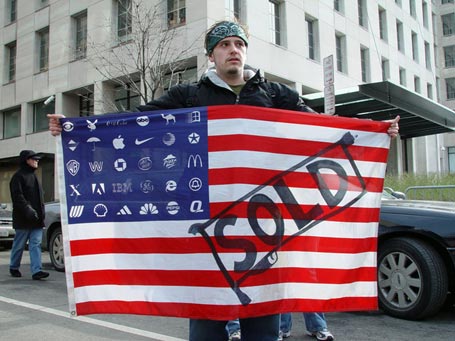Religious Principles Could Save Americans Money
By Sarva Dasa | Oct 25, 2008

While Americans are still reeling from the nearly one trillion dollars which Congress gave to bail out shady bankers and investment firms on Wall Street, and “Joe the plumber” frets about how to afford essentials like home mortgages and food on the table, we are simultaneously throwing our money away for morally questionable, even reprehensible nonessentials to which–according to traditional religious or spiritual values–it shouldn’t go.
For instance, Americans’ addiction to drugs and alcohol costs our economy an estimated 276 billion dollars each year in lost productivity, health care expenditures, substance-abuse related crime and motor vehicle crashes, etc. Each American pays nearly $1,000 for the damages of addiction.
According to Frank Rich, author of “Naked Capitalists: There’s No Business like Porn,” Americans spend between 10 and 14 billion dollars on pornography annually, and while it’s impossible to estimate how much hard-earned cash is surrendered to prostitution, prostitution is a huge, multi-billion business. (For instance, in 1998 the Manhattan Yellow pages had 52 pages of ads for escort services, which, along with sexy massage parlors, often front for prostitution.)
A study by economist Ben Scafidi of Georgia State University found that divorce and out-of-wedlock childbearing, traditionally discouraged by the world’s religious scriptures, cost U.S. taxpayers more than 112 billion dollars each year. The “average” divorce in America costs state and federal governments $30,000 in direct and indirect costs.
Besides the suffering it wreaks, child abuse is also expensive to deal with in America. Prevent Child Abuse America cited research by John Holton and Ching-Tung Wang, Ph.D.s, that by a conservative estimate, the cost related to child abuse and neglect in America was 103.8 billion dollars in 2007 alone. Other forms of abuse are costly as well. According to the National Coalition Against Domestic Violence, an estimated 1.3 million American women are victims of physical assault by an intimate partner each year. The cost of this ungodly violence exceeds $5.8 billion each year.
In a 1998 report, the Justice Department estimated the annual cost of crime to victims at $450 billion a year, about $4,500 per household. But that cost skyrockets further when we pay to imprison criminals. Indeed, the Pew Center estimated that another $44 billion dollars is spent annually to jail America’s 2.3 million prisoners. It’s a sad fact that the United States locks up over 1% of its population behind bars, far more than any other nation, in both raw numbers and even ratio to population, and this includes countries with questionable human rights records like China and Iran. Such wide-scale incarceration of our fellow human beings–who are largely minorities–suggests a spiritual and moral vacuum, the karma of which hits us squarely in our pocketbooks.
Americans also throw big bucks into unhealthy habits like cigarette smoking, too. Economist Justin Trogdon, Ph.D. concluded, “Reducing the number of smokers in the U.S. could save taxpayers billions of dollars in Medicade costs,” If all Medicade beneficiaries quit smoking, taxpayers would save $10 billion.
While many of the above are considered sinful, or border-line sinful, by religions, there is a slew of vain non-essentials that Americans lavish their money on. We squander about 637 billion dollars on legal gambling annually. We fork out about $17.2 billion dollars each year on video games. We cough up $35 billion on cosmetics, $13 billion on plastic surgery, $122.9 billion to deal with our rampant epidemic of obesity, $112 billion on junk food, untold billions on viagra and the like, the list goes on and on.
Perhaps tough economic times will give us a chance to re-scrutinize our values. When our power gets cut off, either by the power company for our failure to pay our bill, or by a hurricane like Ike, will we read scripture in the candlelight and learn to live a little more simply, and a little more righteously? It’s worth considering. Maybe there will be a silver lining in our economic woes.














